Workshops
NCAN sponsors meetings and workshops in specific areas of its research and development activities. Established series are briefly described here. Those interested in further information or in participating should contact NCAN at admin@neurotechcenter.org
 BCI2000 Workshops
BCI2000 Workshops
BCI2000 is a general-purpose software tool for real-time brain signal acquisition, processing, and feedback. It has been in development by NCAN since 1998 and has been provided free of charge to more than 6000 research and clinical groups world-wide. Beginning in 2005, we have organized and conducted annual workshops at sites in the US, Europe, and Asia. They cover the theory and practice of this highly adaptable software platform. These workshops incorporate hands-on user tutorials, in which participants learn how to apply and use BCI2000 for a variety of applications. About 50 scientists, engineers, and clinicians have participated in each one.
Operant conditioning of spinal cord reflexes was first demonstrated by NCAN more than 40 years ago as a basic science model and is now providing a valuable new approach to rehabilitation after spinal cord injury or in other disorders. This work has expanded into additional kinds of operant conditioning and into other methods of targeting beneficial plasticity. It is a principal focus of NCAN’s research. Since 2008, we have organized a biennial meeting of basic and clinical research groups that are working in this area or are interested in beginning such work. The meeting features brief talks by those engaged in related basic or clinical research, formal discussions of key concepts and methods, and much associated formal and informal interaction. The most recent meeting was hosted jointly by NCAN and Shirley Ryan AbilityLab and was preceded by a day-long workshop on targeted plasticity methods. These events preceded the 2024 annual meeting of the Society for Neuroscience. The symposium drew 150 participants.
 Electrocorticography (ECoG) Workshops
Electrocorticography (ECoG) Workshops
Increasing understanding of brain function and increasingly sophisticated methods for recording and interpreting signals from the surface of the brain (electrocorticography (ECoG)) are opening up exciting new opportunities for using these signals for clinical or research purposes. These developments have sparked tremendous interest in human and animal ECoG recordings to investigate the basis of normal brain function related to motor control, language, and memory, as well as of abnormal function such as epileptic seizures. The ECoG workshop series began in 2008. It features talks by leading basic and clinical researchers addressing recent findings, and emphasizes the emerging translation of these new findings into clinical care. The meetings are typically held as satellite functions of the annual meetings of the Society for Neuroscience or the American Epilepsy Society.

